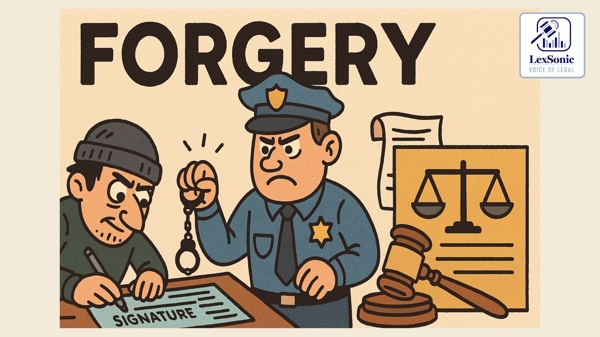Supreme Court Quashes FIR in Alleged Land Fraud Case, Citing Civil Nature of Dispute.
14 May 2025
FIR >> Criminal Law | Forgery >> Criminal Law
The Supreme Court has quashed FIR No. 443 of 2015, registered with MIDC Walunj Police Station, Aurangabad, against the appellants, who were accused of offenses including criminal breach of trust, cheating, forgery, and using forged documents under the Indian Penal Code. The Court found that the dispute was primarily civil in nature and that the criminal machinery was being misused to settle a commercial disagreement.
The case originated from a complaint filed by Ashok Karbhari Shingare Patil (the complainant), a professional contractor. He alleged that Bharat Udyog Limited (BUL), the successful bidder for a sewerage water filter plant project with MIDC Walunj, sub-contracted work to SWD Infra Pvt. Ltd., which then further sub-contracted to the complainant's company, Sai Group. The complainant claimed that after initial payments, a substantial amount remained outstanding. He was then allegedly persuaded by BUL's directors (the appellants) to continue work under a direct sub-contract, with assurances of direct payment. Despite completing further work, the complainant claimed he was not paid the outstanding amount of over Rs. 5 crore. He also alleged that BUL submitted false documents to MIDC, showing two engineers from his company as their employees, and submitted a false stock statement to a bank auditor.

The appellants, directors of BUL, sought to quash the FIR under Section 482 of the Criminal Procedure Code, arguing that the case was purely civil. The High Court of Bombay at Aurangabad dismissed their plea, concluding that BUL had engaged in a "peculiar modus operandi" of obtaining government contracts, raising loans, and not paying sub-contractors, suggesting a larger financial fraud and even recommending investigation by agencies like the Economic Wing or CBI.
However, the Supreme Court, after a thorough review, found several critical issues with the High Court's reasoning and the ongoing investigation:
- Civil Nature of Dispute: The Court emphasized that the complainant had admitted to receiving partial payment, indicating a contractual dispute over outstanding dues rather than outright deception from the outset.
- Lack of Evidence for Wider Fraud: Despite the High Court's conjectures about the appellants misusing contracts to obtain undue gains from banks or MIDC, the investigation report under Section 173(2) of CrPC, submitted after nearly ten years, revealed no evidence to support these broader allegations of financial bungling with other institutions. Neither MIDC nor any banks had raised grievances against the appellants.
- Inconclusive Forgery Allegation: The allegation regarding the forgery of engineers' signatures was found to be unsubstantiated, with the handwriting expert's report being inconclusive.
- Misuse of Criminal Process: The Supreme Court strongly reiterated its stance against the misuse of criminal law to settle civil or commercial disputes, citing the precedent set in Inder Mohan Goswami v. State of Uttaranchal.
Based on these findings, the Supreme Court concluded that the High Court's order was based on "sheer conjectures" and that allowing the FIR and subsequent chargesheet to proceed would constitute a "gross abuse of process of the Court."
The Court, therefore, quashed the High Court's order dated October 8, 2018, along with FIR No. 443 of 2015 and all proceedings emanating from it, including the chargesheet. However, the order clarified that it would not prevent the investigating agency from probing any financial irregularities that might surface during other investigations.
Section 482., Code of Criminal Procedure - 1973
Code of Criminal Procedure, 1973
